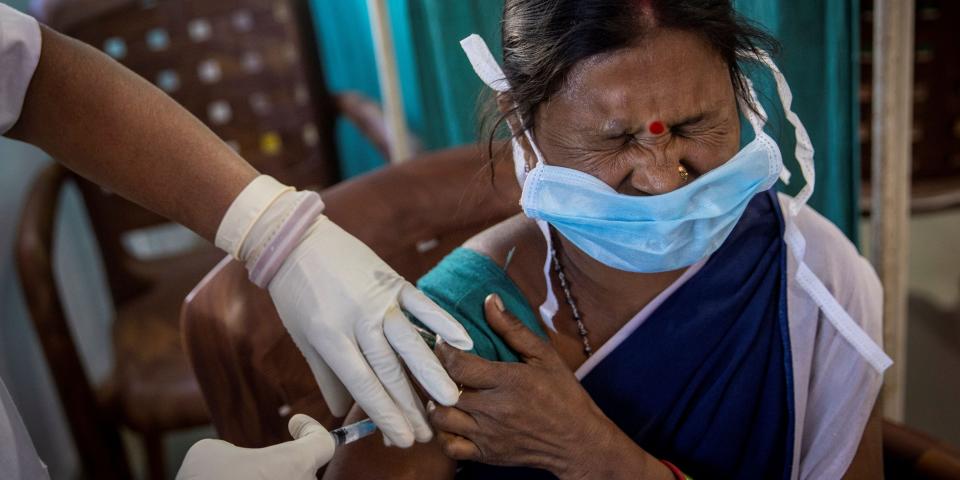Residents of an Indian slum thought they were getting vaccinated like everyone else but were unknowingly part of a clinical trial

A white van drove through the slums of Bhopal in central India advertising a COVID-19 vaccine.
The van reportedly said that anyone who got one would receive 750 rupees.
But according to CNN, the residents were unknowingly part of a vaccine trial.
Related: COVID-19 vaccines are making their way around the world
It seemed like a win-win for residents in the slums of Bhopal in central India when a white van drove through the streets advertising, "Come and take the coronavirus vaccine and get 750 rupees!" from its speaker system.
But according to a new report from CNN, the shots doled out were actually a part of the third phase of India's Covaxin clinical trials - and most of the recipients were completely unaware they were now part of a medical study.
Covaxin is India's first proprietary COVID-19 vaccine. The vaccine has yet to be fully approved for public use and is currently only approved for restricted emergency use. As of late January, Bharat Biotech has stockpiled more than 20 million doses of Covaxin and is pushing to make 700 million by the end of 2021.
Many of the people who received vaccines through the van's instruction live in the Shankar Nagar Slum, just miles from the site of a 1984 industrial disaster that exposed an estimated 500,000 people to a cloud of toxic gas, CNN reported. Some locals in the area still report feeling health issues from the incident decades years later.
CNN interviewed 21 people in the area who received shots in the trial. Many said they were drawn to get the vaccine because of the promise of 750 rupees, approximately $10 in the US.
"I went because of the greed of 750 rupees," Hira Bai, a mother of three told CNN. "Anyway, we are used to dying ... my life has no value."

 Yahoo Autos
Yahoo Autos 